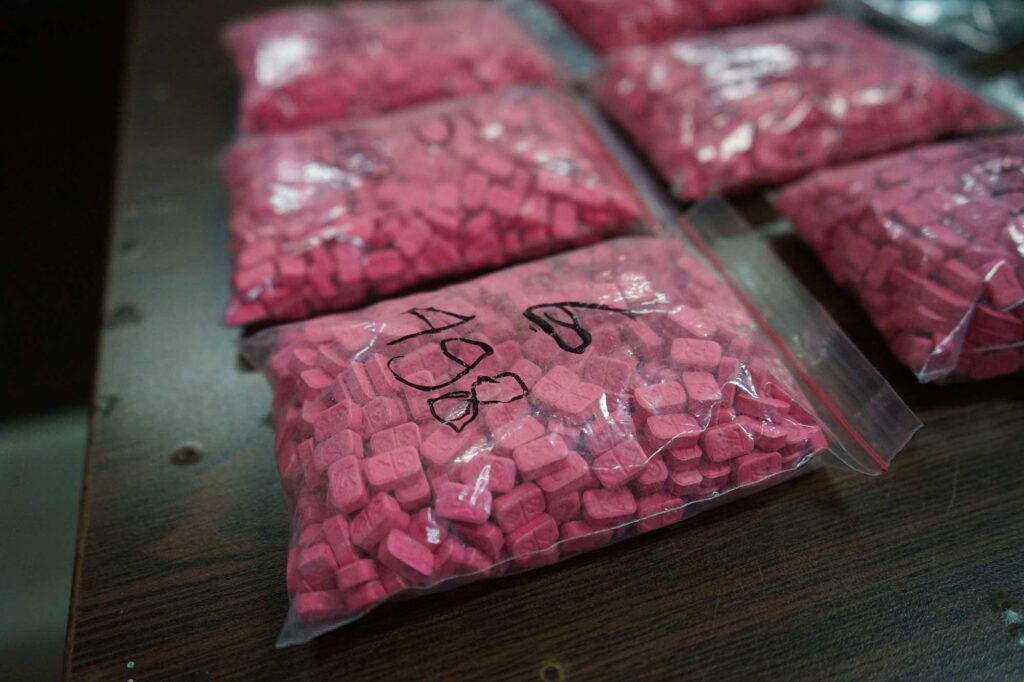Uncategorized
MDMA for Sale? The Legal Journey of Psychedelic Therapy
MDMA, or 3,4-methylenedioxymethamphetamine, wasn’t always the go-to substance for partygoers and festival lovers. It was first synthesized in 1912 by German pharmaceutical company Merck, but surprisingly, they weren’t trying to create a party drug. The original purpose? A potential treatment to stop abnormal bleeding. However, MDMA remained largely ignored for decades because scientists didn’t fully understand its potential. Little did they know that this chemical would eventually transform into one of the most talked-about substances in both underground and medical circles for mdma online.
Fast forward to the 1970s, when a chemist named Alexander Shulgin rediscovered MDMA and realized it had unique psychoactive effects. He introduced it to therapists, who started using it in controlled sessions to help patients open up emotionally. Before long, people outside medical circles got wind of its euphoric properties, and MDMA found itself on a very different path—one that led straight to the dance floor.
The Rise of MDMA in Club Culture
By the 1980s, MDMA had taken on a new identity. It had transformed from an experimental therapy tool to a sought-after party enhancer. Clubs, raves, and music festivals became its new home, and it earned the street name “Ecstasy.” Why? Because it made people feel euphoric, connected, and full of love. Unlike other substances, MDMA didn’t just provide a high—it created an overwhelming sense of empathy and closeness, which is why it became so popular in social settings.
This explosive rise in popularity wasn’t without consequences. Authorities quickly took notice of MDMA’s increasing use in nightlife scenes, leading to its classification as a Schedule I drug in the U.S. in 1985. This meant that, according to the government, MDMA had no accepted medical use and a high potential for abuse. Overnight, a substance that had shown promise in therapy was suddenly illegal. But that didn’t stop people from finding ways to buy MDMA online or seek it out at clubs and underground parties.
MDMA’s Return to the Medical Spotlight
Despite its legal troubles, MDMA never truly disappeared from the scientific world. Researchers remained fascinated by its ability to promote emotional openness and treat conditions like PTSD, anxiety, and depression. Over the years, underground therapists continued to work with the substance, collecting anecdotal evidence that MDMA-assisted therapy could be life-changing. Eventually, the medical community took notice, and serious studies began resurfacing.
By the 2000s, organizations like the Multidisciplinary Association for Psychedelic Studies (MAPS) were leading the charge to reintroduce MDMA into clinical settings. Early trials showed astonishing results, especially for people with treatment-resistant PTSD. Unlike traditional talk therapy, MDMA allowed patients to process trauma without the usual emotional defenses that kept them stuck. These breakthroughs led to larger clinical trials, and today, we’re closer than ever to seeing MDMA approved for medical use.
The Changing Landscape of MDMA-Assisted Therapy
MDMA therapy is no longer just a far-fetched idea—it’s becoming a reality in more places than ever before. Governments and health authorities are beginning to recognize its potential to treat mental health conditions like PTSD, anxiety, and depression. While MDMA remains illegal for general use in most countries, there are a few bright spots where researchers and therapists are legally using it to help patients heal. If you’ve ever wondered where MDMA therapy is taking off, here’s what you need to know.
Countries Leading the Way in MDMA Therapy
A handful of countries have embraced MDMA-assisted therapy, offering legal access in controlled settings. Australia made history by becoming the first country to allow MDMA therapy for PTSD as of July 2023. Psychiatrists there can prescribe it under strict guidelines, giving hope to thousands who struggle with treatment-resistant conditions.
Canada is also stepping up, granting special exemptions for certain patients to receive MDMA therapy under the country’s Special Access Program. While it’s not widely available, this step signals a shift toward broader legalization in the future. In Israel, MDMA has been used in clinical trials for years, with promising results that could pave the way for permanent approval.
The U.S. and Europe: Progress in the Right Direction
In the U.S., MDMA remains a Schedule I substance, meaning it’s considered illegal for general use. However, the FDA has designated it a “breakthrough therapy,” fast-tracking research and approvals. Clinical trials conducted by the Multidisciplinary Association for Psychedelic Studies (MAPS) have shown remarkable success, with approval for medical use potentially coming soon. If you’re looking for MDMA online, though, it’s still not available legally outside of clinical trials.
Europe is also making progress, with some countries leaning toward legalization. Switzerland has allowed limited therapeutic use of MDMA for specific patients under compassionate care programs. Meanwhile, the Netherlands and the U.K. continue to explore its benefits through ongoing research studies. While full legalization might take time, the direction is clear—MDMA-assisted therapy is gaining global recognition.
The Medical Community’s Take on MDMA Therapy
MDMA has long been a topic of debate in medical circles, but experts are beginning to see its therapeutic potential. Doctors and researchers are investigating how this compound can help with conditions like PTSD, anxiety, and even depression. According to some studies, MDMA-assisted therapy allows patients to process trauma in a way that traditional treatments often fail to achieve. When used in controlled, clinical settings, it may help people open up emotionally without the overwhelming fear and stress they usually experience.
Some psychiatrists believe that MDMA can serve as a breakthrough in mental health treatment, offering benefits where conventional medications have fallen short. However, they also emphasize that self-medicating or purchasing MDMA online without professional supervision can be risky. Experts warn that the purity of street-bought substances is highly questionable, which increases the potential for harm. While the future of MDMA therapy looks promising, medical professionals agree that more research and regulation are necessary before it becomes widely available.
Therapists’ Perspective – A Tool for Emotional Healing?
Therapists working with trauma patients have reported promising results when incorporating MDMA into their treatment plans. Unlike traditional antidepressants, which often numb emotions, MDMA helps patients feel more connected to their experiences while reducing fear. This unique effect enables them to revisit painful memories without shutting down emotionally. Many mental health professionals believe that MDMA-assisted therapy could revolutionize trauma treatment, making it easier for individuals to work through past wounds.
That being said, not all therapists are on board with the idea of MDMA as a therapy tool. Some worry that people might misuse the drug outside of professional settings, leading to potential mental health risks. Others stress that therapy is just as important as the drug itself—the combination of expert guidance and MDMA creates a safe space for emotional breakthroughs. If you’re considering exploring this option, experts recommend seeking legal clinical trials rather than attempting to buy MDMA online from unknown sources.
Safety First – Expert Warnings and Recommendations
While the excitement around MDMA therapy is growing, doctors and therapists urge people to remain cautious. Even in controlled settings, MDMA can have side effects such as increased heart rate, dehydration, and emotional crashes. This is why experts stress the importance of professional supervision when using the substance therapeutically. Researchers are actively working on ways to minimize risks while maximizing benefits, but the road to full approval is still in progress.
One of the biggest concerns among experts is the rise of unregulated online sales. With people looking to buy MDMA online, there’s a significant risk of encountering impure or harmful substances. Many medical professionals warn against self-administration and stress that MDMA therapy is not just about the drug—it’s about a structured, guided healing process. Until MDMA receives full medical approval, experts recommend exploring legal studies and clinical trials if you’re interested in its therapeutic potential.
The FDA Approval Process – A Marathon, Not a Sprint
Getting a new treatment approved by the FDA is like running a marathon—long, exhausting, and full of hurdles. When it comes to MDMA-assisted therapy, the journey isn’t just about proving it works; it’s about proving it’s safe, effective, and better than existing treatments. You can’t just buy MDMA online and expect it to be a miracle cure—it needs thorough vetting, and that takes time. The good news? We’re closer than ever to seeing MDMA become a legitimate treatment for PTSD and other mental health conditions.
Clinical Trials – The Heart of FDA Approval
The biggest step in gaining FDA approval is running successful clinical trials. These trials happen in three phases, each one more rigorous than the last. Right now, MDMA-assisted therapy is in the final stages, and the results have been nothing short of promising. If the data continues to show that MDMA can safely help people struggling with PTSD, the FDA could soon give the green light. This means that, instead of people trying to find MDMA online for self-treatment, they could get it legally through trained professionals in a controlled setting.
Safety Reviews – Crossing Every “T” and Dotting Every “I”
Even if clinical trials prove MDMA therapy works, safety remains a top concern. The FDA will carefully analyze side effects, potential risks, and long-term outcomes before making any decisions. It’s not enough to show that MDMA can help with PTSD; regulators need to be sure that it won’t cause more harm than good. This is why buying MDMA online is risky—without proper guidance, dosage control, and medical oversight, you don’t know what you’re getting or how it will affect you. Once the FDA is satisfied that the benefits outweigh the risks, we’ll be one step closer to seeing MDMA-assisted therapy become a reality.
What’s Next? The Final Push Toward Approval
After clinical trials and safety reviews, the FDA will hold advisory committee meetings where experts discuss the findings and vote on approval. If the vote is positive, the agency will work on setting regulations and guidelines for how MDMA therapy should be administered. If everything goes smoothly, we could see legal MDMA-assisted therapy within the next couple of years. Until then, patience is key, and it’s best to wait for the science to catch up rather than trying to source MDMA online. The finish line is in sight, and with the right steps, this promising therapy could soon change countless lives for the better.

